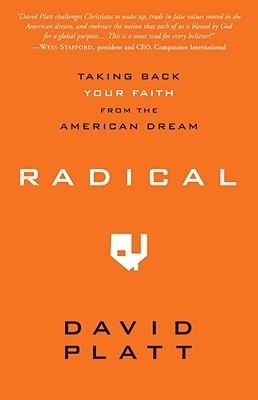More on this book
Community
Kindle Notes & Highlights
So what is the difference between someone who willfully indulges in sexual pleasures while ignoring the Bible on moral purity and someone who willfully indulges in the selfish pursuit of more and more material possessions while ignoring the Bible on caring for the poor? The difference is that one involves a social taboo in the church and the other involves the social norm in the church.5
he is in hell because he lacked faith in God, leading him to indulge in luxuries while ignoring the poor outside his gate.10 As a result, earth was his heaven, and eternity became his hell.
Kind of like an extra chicken for the slaves at Christmas.
Then she looked at me and asked, “Does this mean we do not have enough faith?”
I think there are two common errors people make when they read this passage. First, some try to universalize Jesus’ words, saying that he always commands his followers to sell everything they have and give it to the poor.
The reality is, most of us in our culture and in the American church simply don’t believe Jesus or Paul on this one. We just don’t believe that our wealth can be a barrier to entering the kingdom of God. We are fine with thinking of affluence, comfort, and material possessions as blessings.
while some professing Christians have rejected universalism intellectually, practically they may end up leading universalistic lives. They claim Christ is necessary for salvation, yet they live their Christianity in silence, as if people around them in the world will indeed be okay in the end without Christ.
The reality is, the innocent guy in Africa will go to heaven because if he is innocent, then he has no need for a Savior to save him from his sin. As a result, he doesn’t need the gospel. But there is a significant problem here. The innocent guy doesn’t exist… in Africa or anywhere else.
then this would mean there is something else they can do to get to heaven.
But this passage is teaching that when we preach and people hear, some of them will believe.
it—the simple divine plan for taking the gospel to all peoples of the world. God sends his servants. → His servants preach. → People hear. → Hearers believe. → Believers call. → Everyone who calls is saved.
In the middle of a Christian culture asking, “How do I find God’s will for my life?” I bring good news. His will is not lost. With 1.4 million Bedouins in Algeria who have never even heard the gospel, it makes little sense for us to sit over here asking, “What do you want me to do, God?” The answer is clear. The will of God is for you and me to give our lives urgently and recklessly to making the gospel and the glory of God known among all peoples, particularly those who have never even heard of Jesus. The question, therefore, is not “Can we find God’s will?” The question is “Will we obey
...more
Will we refuse to sit back and wait for some tingly feeling to go down our spines before we rise up and do what we have already been commanded to do?
Paton wrote, “Amongst many who sought to deter me, was one dear old Christian gentleman, whose crowning argument always was, ‘The Cannibals! you will be eaten by Cannibals!’” John Paton replied to this man, “Mr. Dickson, you are advanced in years now, and your own prospect is soon to be laid in the grave, there to be eaten by worms; I confess to you, that if I can but live and die serving and honouring the Lord Jesus, it will make no difference to me whether I am eaten by Cannibals or by worms; and in the Great Day my resurrection body will arise as fair as yours in the likeness of our risen
...more
John Paton, Jim Elliot, and C. T. Studd all illustrate one fundamental truth: your life is free to be radical when you see death as reward.
Throughout this book we have explored a variety of bold claims about our purpose in life that are contained in the gospel yet contradicted by the American dream. Claims such as these: Real success is found in radical sacrifice. Ultimate satisfaction is found not in making much of ourselves but in making much of God. The purpose of our lives transcends the country and culture in which we live. Meaning is found in community, not individualism; joy is found in generosity, not materialism; and truth is found in Christ, not universalism. Ultimately, Jesus is a reward worth risking everything to
...more
First, spend your money on something that is gospel centered. There are many organizations aimed at serving specific needs in the world, but people’s greatest need in the world is Christ. To meet people’s temporary physical needs apart from serving their eternal spiritual need misses the point of holistic biblical giving. Second, and related to this, give in a way that is church focused. We will consider this in more depth in a moment, but suffice it to say here that it is not wise to bypass God’s primary agent for bringing redemption to the world in an effort to meet the needs of the world.
...more
Christ’s command to make disciples is an invitation to give our lives for the sake of others.


